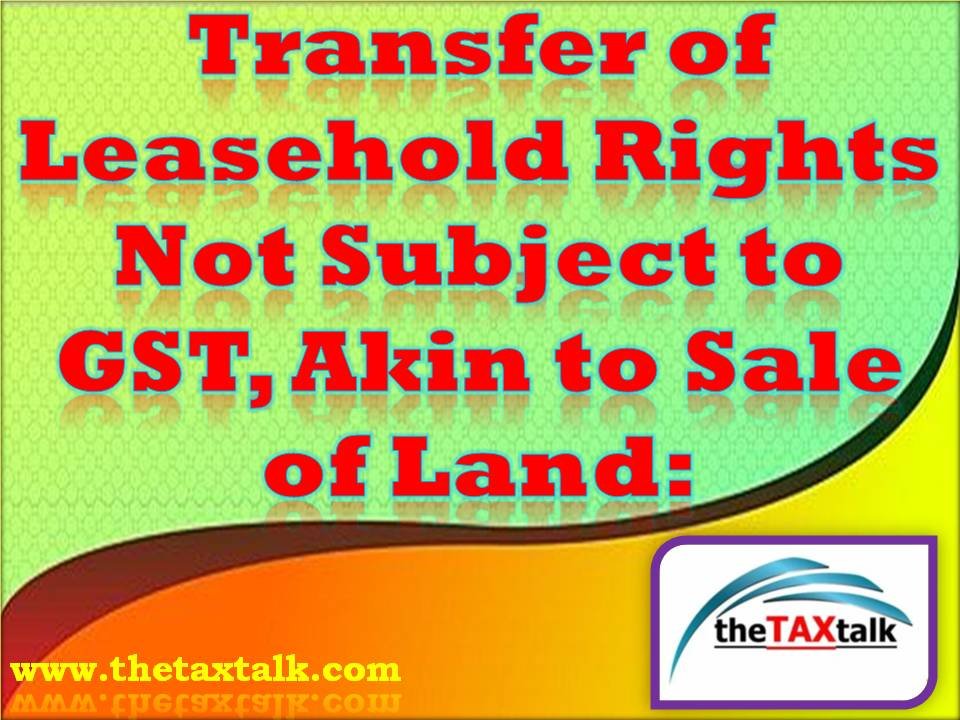![]()
Transfer of Leasehold Rights Not Subject to GST, Akin to Sale of Land:
Gujarat High Court
iraj Can Co. Pvt. Ltd.
Vs
Union of India & Ors.
Judgment
The Hon’ble Apex Court in case of Byramjee Jeejeebhoy (P) Ltd vs State Of Maharashtra reported in AIR 1965 Supreme Court 590 while holding as to what a lease contemplates has observed that a demise or a transfer of a right to enjoy land for a term or in perpetuity in consideration of a price paid or promised or services or other things of value to be rendered periodically or on specified occasions to
the transferor. The words “transfer of right to enjoy such property” indicates that all the rights of ownership are not transferred.
Therefore, the significance of those words as indicative of the limited estate transfer is apparent in contrasted which flows in section 54 where a sale is defined as “transfer of ownership in exchange for a price”.
Therefore, while assignment conveys the whole interest in the property which passes to the assignee along with rights and liability to sue and be sued upon the covenants in the original lease.
73.Therefore, the scope of “supply of services” would not include transfer of leasehold rights as supply of service as it would be transfer of “immovable property” being a benefit arising out of immovable property consisting of land and building.
74.Clause 5 of Schedule III of the GST Act clearly provides that sale of land cannot to be treated as supply of goods or services.
Therefore, leasehold rights which are to be considered as sale of land would be out of purview of the provisions of scope of supply as per section 7 of the GST Act.
75.As the GST Act is Nothing but a levy of tax upon all the indirect taxes which were levied under different legislation, it would be
germane to refer to definition of “service” as provided in section 2(102) of the GST Act to mean as anything other than goods, money and securities. Considering such definition in juxtaposition to provisions of section 65B(44) of the Finance Act, 1944, there was specific exclusion of transfer of title in immovable property from definition of ‘service’ itself which clearly shows that there was no intention of the legislature to impose tax on transfer of immovable property. Under the Service Tax Act, even the development rights which are the benefits arising from land were not liable to tax. Leasehold right is in fact a greater right and interest in land than development rights and the principle under the service tax regime would therefore, continue even to apply under the GST regime as the object of introduction of GST is to subsume the existing tax.
76.It would also be necessary to refer to the Minutes of the meeting of 5th GST Council to the Agenda 2A which clearly notes that service tax was not leviable on transfer of immovable property and a specific proposal was made to impose GST on sale of immovable
property on the ground that there was no constitutional embargo for imposing such tax and the stamp duty was leviable on a different
aspect. 7th GST Council meeting held on 22nd and 23rd December, 2016 after a detailed discussion decided to defer imposition of tax
on land and building and thereafter, clause 5 of Schedule III of the GST Act clearly excludes sale of land and building which fortifies the intention of the GST Council not to impose tax on transfer of immovable property continuing the underlying object of erstwhile service tax regime.
The copy of the order is as under:

